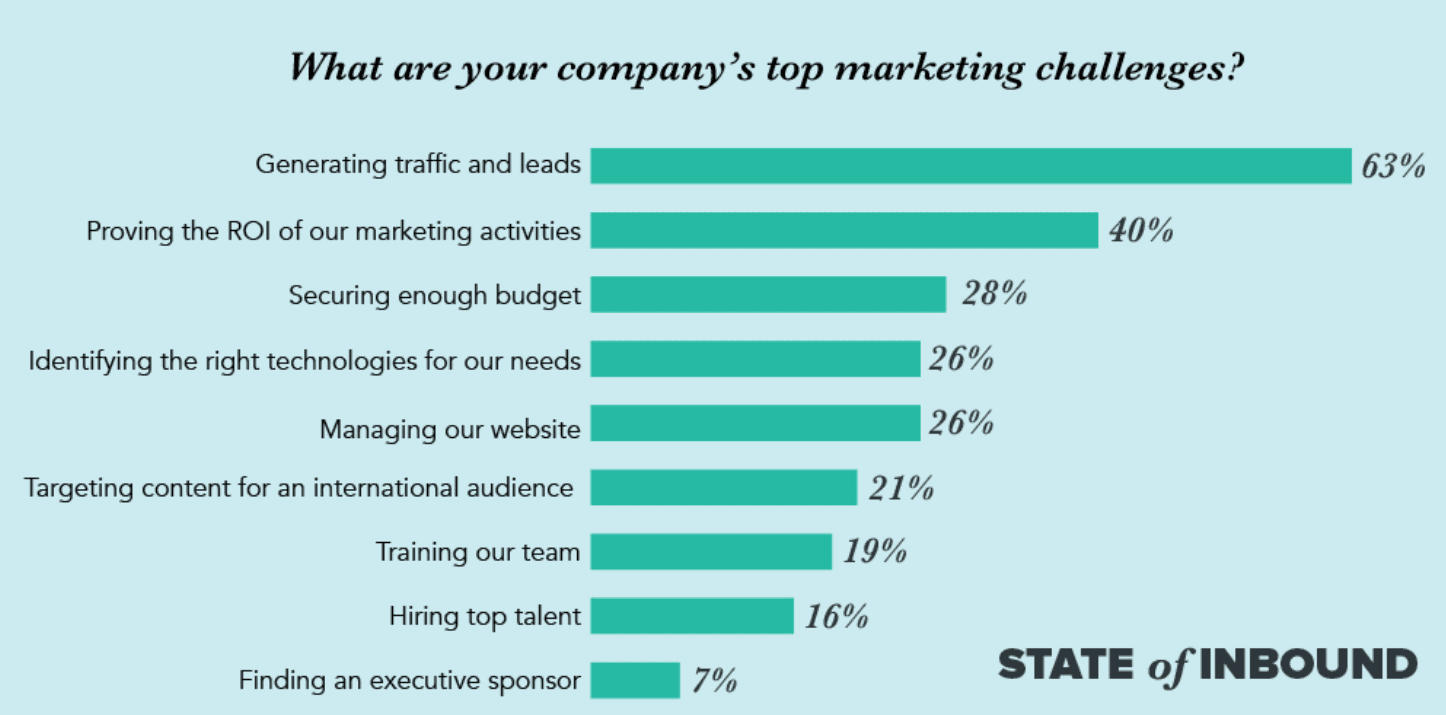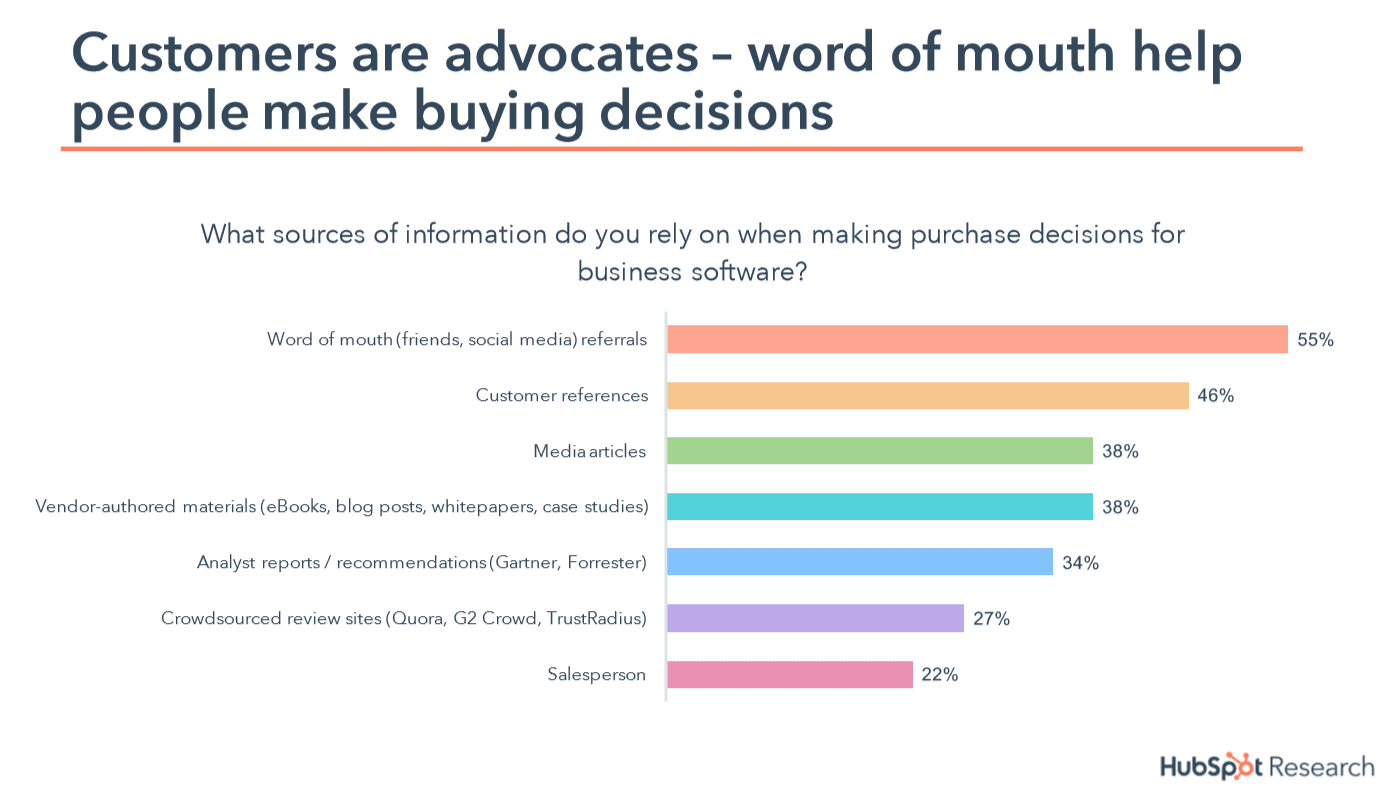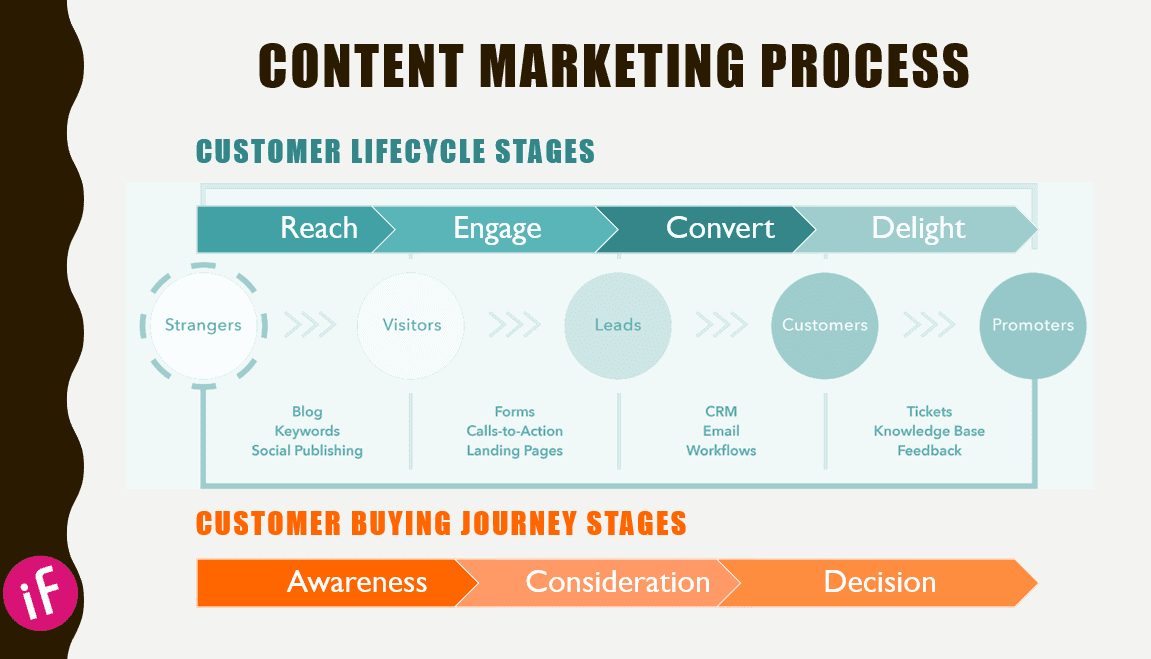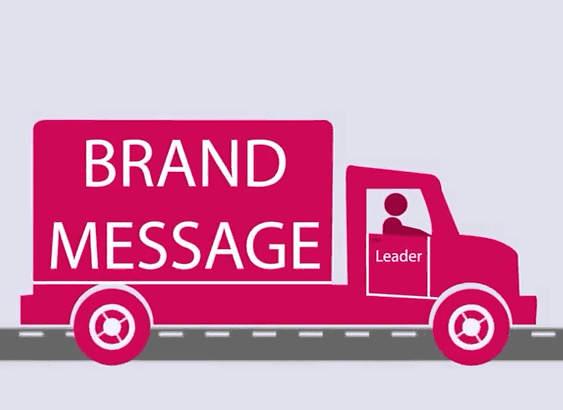B2B Content Marketing 4.0 is here, and it is re-writing the rules for growth. As the central part of digital marketing, content marketing has radically transformed the way B2B companies generate sales and growth. In this new paradigm, Google and Social Media platforms dictate the new rules of the business-to-business marketing game. Essentially, these powerful business platforms, aided by algorithms, machine learning and AI technology, control how you create your customer.
If you think you own your Sales Funnel or Sales Pipeline, think again. You are just renting it!
The Good News
The good news is that brands have the ultimate power to leverage those rules. Just consider this.
What makes these platforms so powerful? The user-generated Content. It powers these digital platforms and they depend on Your content for fuel.
Here, your Brand is in control! Here, your Content Marketing is your chance to write your own sandbox rules for growth and market disruption. Why? Because you know your customer better than anyone else. You know their interests, pain points and problems they are trying to solve. You have solutions. But remember, not all Content was created equal.
B2B Marketing Has Evolved
Today, Google, Social Media and Bloggers aka Influencers are the key digital content distribution channels. Their aim is simple: to help people and businesses achieve their goals of buying, selling and doing their jobs better through best information. Hence, they create rules, we marketers must know better than anyone else – and then play the game better than anyone else.
However, their own success depends on the quality of your content. The better your content is, the more they reward your brand in opportunities to be found and build trust!
So, while Google (94% of search traffic) sets the rules, businesses can use content to play the game better than their competitors. Content Marketing, when built on strategic foundations, becomes rocket fuel for B2B growth.
Global research, State of Inbound, by HubSpot, reveals that 63% of companies struggle to generate traffic and leads. Directly linked to this issue is the fact that 40% of marketers grapple with measuring ROI, failing to make a case for sufficient budgets to enable meaningful results and achieve business goals.
The actual issue is that 26% of B2B marketers have difficulty identifying the right technologies needed to capture data to show and leverage activities and channels that deliver best results. Incredible 26% of marketers struggle to harness the potential of their primary hub of business communication, the company website.
According to Gartner Marketers Report, the immediate priority for B2B marketers should be to deploy advanced models to better align channel investment decisions with customer journeys and desired business outcomes.
Marketers also must be able to design, or as I prefer to call it, “co-design” a marketing technology (Martech) roadmap that captures business and capability requirements. Not one person can do it alone. Ultimately, says Gartner, B2B marketers need to design an efficient marketing organization, that cost-effectively bridges resource gaps, using a combination of in-house and outsource providers.
This poses a unique challenge for small to medium businesses: affordability of Marketing.
Tick, tick, and tick! These transformational recommendations are at the core of how Content Marketing works. Keep reading!
Traditional B2B Sales Model Is In Crisis.
Sales are the number one priority for business. Yet, in the new digital world, many Sales teams struggle with traditional sales activities (source: State of Inbound 2018): 37% with prospecting, 28% with closing, 18% with identifying leads and 17% with qualifying.
These issues, demonstrating the digital impact on the society and business, put the traditional B2B sales model back on the drawing table. Clearly, sales Reps no longer need to be involved in every part of the Sales Funnel and don’t exclusively own customer relationships.
Universal access to information has created a new empowered B2B buyer. This buyer is informed, backed by peer and influencer advice, and comes in larger cohorts of decision-makers.
Forrester research found that today’s B2B buyer is increasingly self-directed. 68% prefer to research online, and 57% are in purchase decision stage by the time they first contact a brand. Over 60% of B2B buyers prefer not to interact with a sales rep as the primary source of information.
Data from LinkedIn Business shows that 53% of B2B buyers rely on peer recommendations and 76% give priority to vendors suggested by their peers. Yet, while word of mouth (WOM) remains the strongest buying influence, today, it relies on being digitally generated and leveraged.
How Is This Good News for B2B Companies?
Continued customer education, especially in selling complex technologies and SaaS products, has never been more important. But today, Content replaces or augments several aspects of a Sales Rep’s role. From generating brand awareness, leads and conversions, to word of mouth, Content and Marketing Technology underpins every customer touch point.
It is critical to realise that the personal touch in B2B sales relationships, the major benefit of personal selling, is also the major strength of content marketing. Embracing the Content-driven Sales and Marketing model enables B2Bs to create efficiencies and leverage human talent where it helps build trust and loyalty and close deals.
Today, your best Sales Executives who can put your business on a new growth trajectory deliver their best value by identifying customers’ challenges, unmet needs and pain-points. This, of course, requires a good internal communication process to inform the entire organisation and helps enhance marketing and innovation strategies.
Sales people are at their best when they are in front of a qualified prospect. The result is shorter sales cycles, more closed sales and ‘better’ customers who bought from you instead of being sold to. They are more likely to tell others how they did it!
So, What Is Content Marketing?
While ‘content’ has been around for as long as selling, Content Marketing is the phenomenon of the digital era. Type ‘content marketing’ in your browser and you will instantly get over 2.5 Billion results. Yet, despite the hype, Content Marketing is not uniformly understood.
Essentially, Content Marketing is a strategic business process of creating & distributing valuable, relevant & consistent content that is designed to attract and pull your ideal Customers (Personas) through every stage of the buying journey.
Content Marketing is extremely powerful when anchored in strategic intent and Inbound methodology. Inbound marketing comes with a globally recognized business process, supported by marketing automation and ROI accountability.
The graphic below, adapted from HubSpot Academy resources, demonstrates how the inbound Content Marketing process aligns content formats to reach, engage, convert and delight your ideal target audience. Global marketing leaders and the most progressive marketing agencies, such as InnoFuture, leverage this model to outperform competitors.
Ultimately, Content Marketing strategy enables B2B companies achieve multiple business goals relating to growth and the bottom-line performance, including:
1. Lead generation & nurturing
2. Customer acquisition / conversion
3. Customer development and ongoing engagement
4. Brand awareness and trust
5. Brand advocacy development (WOM on steroids)
6. Disruptive innovation opportunities
4. Content Marketing and Innovation
Innovation? Not surprisingly, Content Marketing fuels innovation! The understanding of your customers that flows from market engagement, delivers data and insights on new and uncovered customer needs. It informs the organisation about customer product and service experience, stimulating improvement and new development.
Innovation is a critical factor in the digital future. According to Gartner CMO Spend Survey 2018-19, to adapt to changes in consumer behaviours, technologies and environmental conditions, over the next 18 months one in six marketing dollars will be spent on marketing innovation.
Content and the B2B Customer Buying Journey
The most effective selling doesn’t involve selling at all. It’s about helping customers buy from you and provide value so compelling that in turn, will compel them to promote your brand. Herein lies the power of content. The core principle of content marketing is to build trust and rapport by offering genuine value. The currency is information: needed, helpful and relevant.
As information, content can be presented in a vast variety of formats, including:
• Website articles
• Blogs
• White papers, guides and eBooks
• Infographics and other images
• Video
• Webinars
• Email and e-newsletters
• Podcasts
• Social Media posts
• Direct messaging
• PR
• Events
• Advertising copy, etc
While content is increasingly relying on online formats, I like to include events in the B2B content marketing mix. Owned, hosted or supported, events offer unique opportunities for B2B brands to build thought leadership, get closer to prospects and customers. Importantly, events also generate valuable, original content to re-purpose online.
Content type a B2B company will use, depends on their SMART goals that are linked to the customer persona and different stages of customers’ buying journey. Most businesses only need a handful of content formats that best reflect their customer’s interests and their brand voice.
The table below, adapted from HubSpot Academy, shows how Content Marketing offers a strategic framework for building communication assets for every stage and touch point of customer journey.
These assets provide ‘directional signs’, constantly pointing customers to your Brand, helping them recognize your solution, consider and buy it. Ultimately content converts strangers into your brand advocates.
Marketing automation technology makes it efficient, repeatable and can enhance personal customer experience.
The Power of Content is in Numbers
To help you benchmark and fine-tune your content marketing and your Lead Generation strategy, check out this insanely comprehensive list of digital marketing statistics in The Ultimate List of Marketing Statistics for 2018 by HubSpot.
The statistics selected below, highlight the significance of Content in the digital sales and marketing mix.
• 94% of total organic traffic is via Google search
• 70-80% of search engine users are only focusing on the organic results
• Organic SEO is about 566% more effective than paid search ads
• The average Google first page result contains 1,890 words (this article has around 2700 words)
• 50% of search queries are four words or longer
• Video in a SM post increases organic traffic from search results by 157%.
• 75% of company’s blog views and 90% of blog leads come from old posts
• 43% of B2B marketers consider blogging the most important type of content
• 68% of B2B businesses use landing pages to acquire leads.
Write Your Own Content Rules for Results You Want
Content Marketing is suitable for a business of any size. You can use Content effectively even if you have a very limited budget: DIY! Unlike paid advertising, it will continue to work 24/7, no extra cost, creating compounding value.
Content thrives on long-term strategy and agile execution. While you need to have a clear long-term business goal, you don’t need to spend weeks creating a detailed content for 12 months at once. Instead, we recommend that you drive content marketing in 90-day sprints, with rapid prototyping and continuous improvement.
Your Content Marketing Foundations In 10 Steps
The process outlined below is the best practice for a B2B company wanting to become a recognized market name and a destination for B2B buyers. Following these steps, without cutting corners, will enable you to build strong Content Strategy Foundations for content marketing that delivers compounding value with increasing ROI.
1. Define your Strategic Business Goal: your Destination
2. Define your Audience: Customer Profiles or Personas
3. Select the Right Channels to Reach your Customers
4. Consider what you have: your Content Marketing Capability situation
(Do you know what works well? Where your results really come from? What can be improved? What’s missing? How effective is your Marketing Tech Stack?)
5. Outline your SMART Goals: these are the KPIs to measure your progress
6. Define Types of Content for Your Customer Personas & Buying Journey Stages (Table above)
7. Develop and Confirm Marketing Budget to Achieve SMART Goals
8. Develop Content Calendar & Campaign Schedule for 90-days to support SMART Goals
9. Roll out: Launch Campaigns | Measure | Improve | Repeat process
10. Drive ROI with Automation and Innovation
Content is King. Execution is Everything!
To reap the rewards from your Content Marketing strategy, you need relentless execution. The problem with digital marketing is that is comprises a growing number of specializations. No one person can do everything alone, or, has all resources in-house.
Your Content Marketing support team needs to include at least: a specialist B2B Content Writer, Designers, Video production, Marketing Automation, e.g. email marketing and SEO and SM specialists. Don’t panic. It doesn’t have to cost a fortune or take the valuable time from you or your lean team.
While every business can benefit from having an experienced CMO to orchestrate all specialist areas, most small B2B companies don’t realize that it doesn’t even have to be a full-time role. The critical factor is flexibility and ability to scale up marketing activity cost-effectively.
The most important success factor of Content Marketing strategy giving away “ownership” through Collaboration Co-Creation and Celebration. Build internal Content Culture: create a Movement!
It is critical that an experienced and innovative Content Strategist drives the first 12 months of implementing Content Marketing Strategy. This will ensure the continuity of strategic thinking and enhancing the strategy with new insights, it will deliver stronger ROI.
A complete full-year cycle of building a digital content-driven B2B growth platform will allow your organisation to understand your market’s responsiveness to channels, formats, timing and messaging language. Understanding these nuances builds brands that build insane loyalty, advocacy and brand equity.
Content Imperative and the Digital Age CEO
Content Marketing is the most innovative form of marketing in the 21st century. Content Marketing offers the level of predictability, transparency and ability to show ROI from all activities that has never been available before.
Is the old adage that “we know that 50% of advertising works, but don’t know which 50%”, finally dead?
Content Marketing strategy delivers strategic results that address every business challenge relating to growth, innovation and the bottom-line business performance. Incidentally, until AI becomes as common as a tablet, Content Marketing is still about people: co-creating and co-consuming, being engaged, and engaging others.
It is in the best interest of the Leader to provide an environment in which all people can grow and do amazing things for your business. And, if your business doesn’t yet have a CMO or a Content Strategist, you will do what your customers do: research online, ask your peers.
Do it! And, in doing so, look for Experience, Vision and Passion to Create the Extraordinary!
Now that you are here, talk to me. What do you think?
About the Author:
 Margaret Manson is an experienced, inbound certified content marketing strategist. As Founder and Chief Inspirator of Melbourne based InnoFuture Marketing Innovation, she provides strategic, tactical and marketing project management support to innovative B2B organisations. She works with selected companies as a high calibre, part-time CMO helping them grow and scale up their marketing efforts.
Margaret Manson is an experienced, inbound certified content marketing strategist. As Founder and Chief Inspirator of Melbourne based InnoFuture Marketing Innovation, she provides strategic, tactical and marketing project management support to innovative B2B organisations. She works with selected companies as a high calibre, part-time CMO helping them grow and scale up their marketing efforts.
| Contact: 0407 66 11 30 | Book a Confidential Strategy Call



 Source: Hubspot
Source: Hubspot


